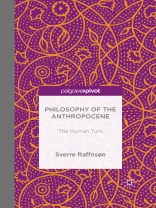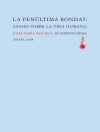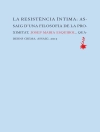The Anthropocene is heralded as a new epoch distinguishing itself from all foregoing eons in the history of the Earth. It is characterized by the overarching importance of the human species in a number of respects, but also by the recognition of human dependence and precariousness. A critical human turn affecting the human condition is still in the process of arriving in the wake of an initial Copernican Revolution and Kant’s ensuing second Copernican Counter-revolution.
Within this landscape, issues concerning the human – its finitude, responsiveness, responsibility, maturity, auto-affection and relationship to itself – appear rephrased and re-accentuated as decisive probing questions. In this book Sverre Raffnsøe explores how the change has ramifications for the kinds of knowledge that can be acquired concerning human beings and for the human sciences as a study of human existential beings in the world.
Jadual kandungan
Introduction: For Whom the Bell Tolls
The Hour of the Pig…
The Hour of Man?
Redefining Humans and the Human Condition
New Vistas
First Investigation:
Exploring the role of Humans in the Anthropocene Landscape
1. The Opening of a New Chapter in the World’s History
2. A Prominent Role in a Landscape Lush with Mutual Mediation
3. The (Post)human Condition
Second Investigation:
Exploring the Human Turn as a Challenge for Humans and the Sciences
4. The turn within and of the Human
5. The Human Turn as it Appears within Central Fields of Knowledge, Capabilities and Skills
6. The Human Turn: A Challenge for the Human Sciences
7. Man at the Centre – the Legacy of the Humanities
8. The Human Turn: A Turn within the Human Sciences
9. A Copernican Turn
Mengenai Pengarang
Sverre Raffnsøe is Professor of Philosophy and Editor-in-Chief of Foucault Studies at Copenhagen Business School, Denmark. In addition to Foucault: Studienhandbuch (2010), Foucault: A Research Companion (Palgrave, 2014), Nietzsche’s ‘Genealogie der Moral’ (2007) and Coexistence without Common Sense, Vol. I-III (doctoral dissertation 2002, 911 pages), he is the author of books and articles on philosophical aesthetics, management philosophy, social philosophy and recent French and German philosophy.












